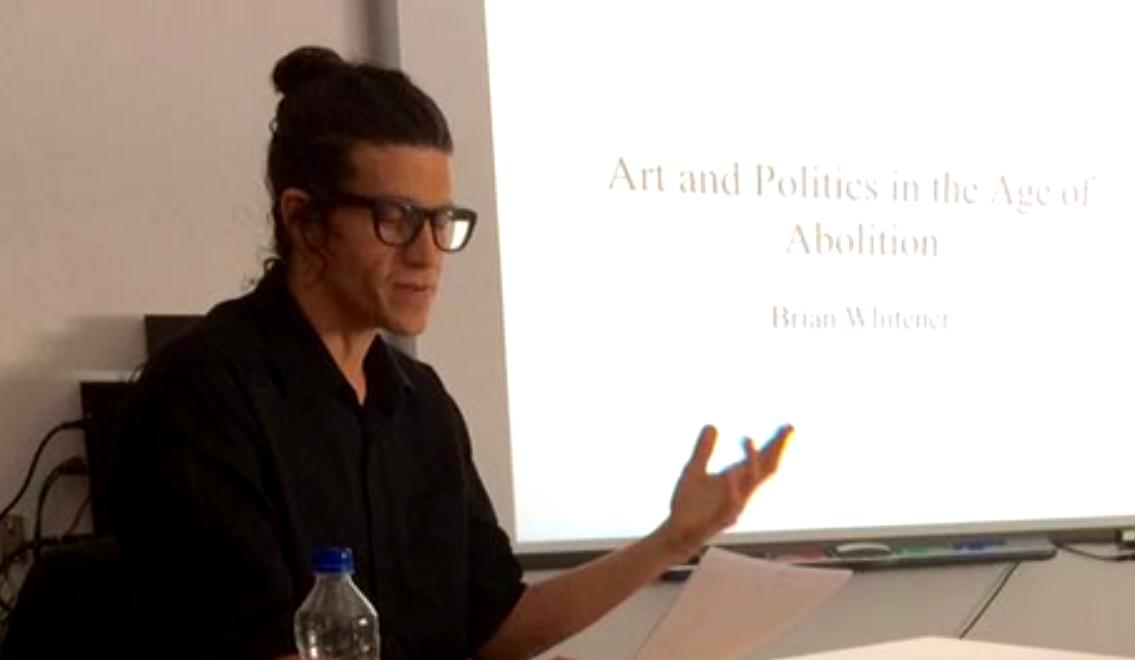
4 minute read
Interview: Dr. Brian Whitener
S A V A N N A H C A S T R I L L O
Advertisement
Dr. Brian Whitener teaches Spanish at the University of South Alabama. He shares his thoughts on learning and teaching the language as well as those on engaging with Spanish-speaking cultures.
What did you study in college? Why did you decide to learn Spanish?
I went to a liberal arts college that had no grades and where students developed their own course of study. I actually started off studying computer science (another kind of language) but ended up spending most of my time taking literature and philosophy classes. I only took a year of Spanish in college (and regretted not taking more). I decided to really learn Spanish when I was living in Chicago after college, teaching at an art school and writing poetry and essays. I had never wanted to be monolingual and also wanted to be able to translate and decided it was time to do something about it so I started studying on my own and saving money to move to Mexico and take classes.
What have you learned from the different Spanish cultures that you’ve experienced?
It would be hard to pick just one thing but something that I have learned from living in Mobile actually is that there are a lot of similarities across the geographical zones that border the Gulf of Mexico. One can see from Floribama to Veracruz to Havana the deep influence, and differential histories, of slavery and colonization.
What is the most interesting cultural difference you have come across?
Having spent years now studying Latin American and Caribbean cultures and societies, one thing I am interested in today is how long historical processes, such as colonization, industrialization, or the Atlantic slave trade, produce difference-within-similitude. Just to give one example: while configurations of gender relations differ across regions, there’s a broad pattern of similarity in forms of gender domination and violence. How did that sameness but also those differences emerge over time and out of what historical processes? Those are the kinds of questions around cultural differences that interest me right now.
How has learning new languages impacted your thinking?
I don’t think any aspect of my thinking or life is the same, from the experiences that I have had to the ideas and discussions that are formative to me as a person.
What is your favorite word in any language you’ve come across?
I think more than specific words what comes to mind are how different grammatical conventions make possible seeing and understanding the world in different ways. Like Spanish having two past tenses and what that makes possible to talk about, or how Nahuatl (an indigenous language spoken in Mexico) has no specific word for blue (blue and green are covered by the same word), or how the use of a gente (to refer to a specific group of persons, a “we” but more intimate) in Portuguese makes possible the perception of different kinds of collectivity and intimacy.
Why did you decide to become a professor at South and teach Spanish?
I took a job at South, in part, because I wanted to teach at a public university. I feel strongly that everyone should be able to learn and study as much as they would like.
Do you have any tips for students learning a foreign language?
Find and follow the joy that it brings you and do something with the language every day (and never stop adding new languages if you can).
Grannies Respond Workshop
B Y M A R I L E N A P I C K E T T
On September 20th, 2019, Phi Sigma Iota co-hosted a Grannies Respond workshop in the Student Center Terrace. Grannies Respond is an NGO that works to assist refugees at the Mexico-United States border and across the nation. Members of the Mobile chapter were joined by other groups to speak about their experiences and to explain what they do. The organization is named for the “group of outraged grandmothers” from New York who started it in 2018, upon hearing of the current administration’s policy of separating children at the border. They traveled to McAllen, Texas, where the largest detention center is, to protest and were joined by people from several states. After leaving Texas, the group began meeting asylum seekers at bus stations across the United States. At the workshop, members talked about the horrors asylum seekers face at the border and in detention centers around the country. They spoke about their experiences working at the border, at the New Orleans bus station, and at our greyhound station here in Mobile. The “grannies” meet asylum seekers at bus stations, usually with care packages that include basic necessities, a warm meal, and even toys for children, although their exact contents depend on the station’s rules. They help locate buses, make necessary phone calls, and offer asylum seekers who will be staying in their communities temporarily whatever assistance they may need. BELONG, an advocate group for immigrants’ rights, hosted the workshop along with Phi Sigma Iota. The organization works with immigrants and asylum seekers locally, by offering tutoring, teaching life skills, and providing aid in other forms. BELONG also works with the local Grannies Respond chapter meeting asylum seekers at the Greyhound station. For more information on Grannies Respond, visit granniesrespond.org. For details on BELONG, find their page on the South Serves website at southserves.southalabama.edu/agency.








